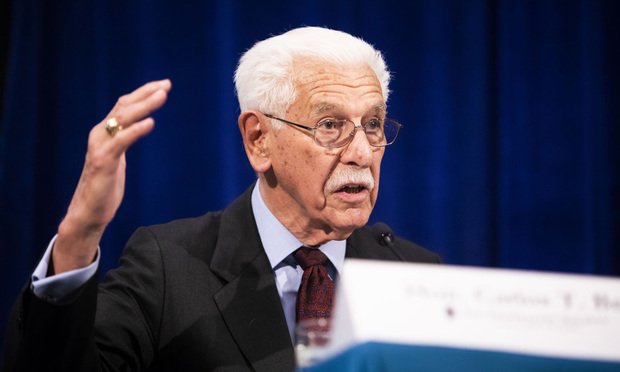FTC Laments Two Recent Deaths in the Judiciary: Irony and Ethics
Fix the Court is calling on federal judges and justices to be more circumspect about the “appearance of impropriety,” and on Congress to pass the Supreme Court Ethics Act as a standalone or part of H.R. 1, in light of recent events that demonstrate a blithe disregard for proper judicial conduct.
Recent ethical lapses have occurred at all three levels of the third branch. On Sunday, Justice Barrett gave a talk in Louisville organized by the McConnell Center, during which she exhorted the public not to view SCOTUS as biased or political. News reports indicate that this was an earnest request.
FTC’s Tyler Cooper said:“There’s value in members of the high court speaking to audiences outside of Washington, but that concept is corrupted when stretched to rationalize appearing at events that look and sound like political pep rallies.”
(FTC is trying to obtain the video, though thanks to public records requests by FTC’s Tyler Cooper and Dylan Hosmer-Quint, we know a 2017 Justice Gorsuch talk was not video-recorded, much to the chagrin of university staff.)

On Friday FTC sent a letter to Ninth Circuit Judge Carlos Bea (right) requesting that he decline an award scheduled to be presented to him this Saturday by the Claremont Institute and the founding director of its Center for Constitutional Jurisprudence, failed insurrectionist John Eastman.
“Due to [Eastman’s anti-democratic actions], Fix the Court believes that your appearance at this event would impugn the integrity of the judiciary,” the letter concluded. Judge Bea has yet to respond.
Also late last week, FTC called on Judge John Sinatra to recuse himself from Meadors v. Erie County Board of Elections (W.D.N.Y., 21-982), a case where supporters of Buffalo Mayor Byron Brown are attempting to add Brown’s name to the November mayoral race ballot, even though Brown lost his primary and missed a filing deadline.
The perceptions of impropriety here are almost too numerous to recount. Judge Sinatra’s brother Nick is a Buffalo real estate developer who has donated to Brown’s campaign multiple times. Brown appears three times in a PR video for Nick Sinatra’s firm. John Sinatra’s old law firm, Hodgson Russ, was at one point lead counsel for the City of Buffalo.
“Federal law states that a judge ‘shall disqualify himself in any proceeding in which his impartiality might reasonably be questioned.’ A reasonable person — noting these familial, financial and professional conflicts — would reasonably see bias, so recusal is required,” Roth said. “Half a dozen Western District judges who don’t have these conflicts and could hear this case impartially are standing by.”
Since reconstituting as a 501(c)(3) nonprofit on Sept. 1, FTC has also been researching potential judicial ethics issues in N.D. Illinois, D. South Carolina, W.D. Wisconsin, the Fifth Circuit and an unnamed circuit court. This work is ongoing, though updates are expected soon.